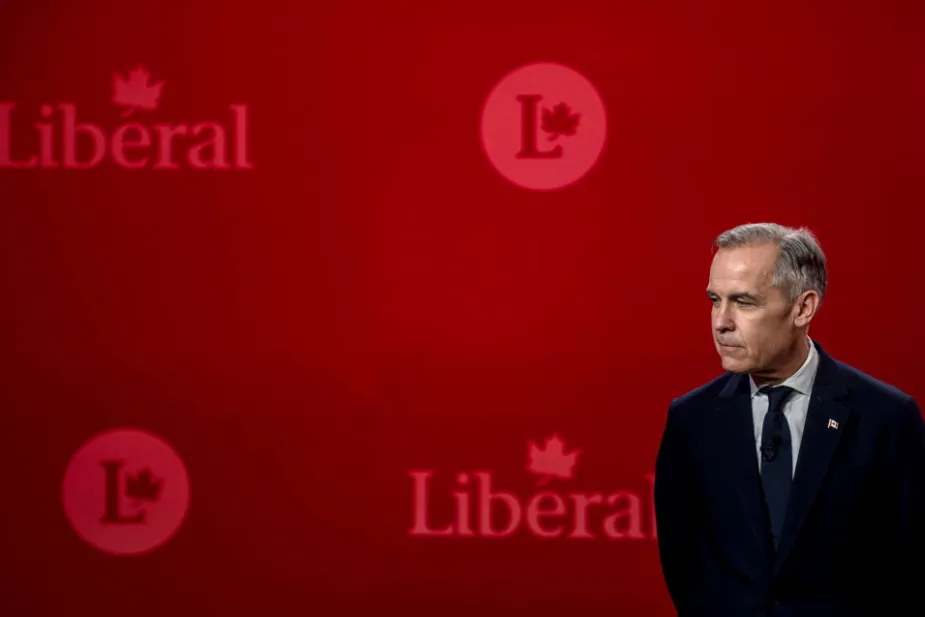Why Canada Is Putting Its Faith in Mark Carney
In the coming days, Mark Carney will be sworn in as Canada’s 24th Prime Minister, stepping into a political arena at a critical juncture for both his party and the nation.
A High-Stakes Leadership Transition
Carney, who once served as a backup goalie for Harvard’s hockey team, is now taking on an even greater challenge—leading a country in turbulent times. With Donald Trump threatening severe economic measures against Canada, the nation faces a crucial election within weeks. The choice lies between Carney and Conservative Leader Pierre Poilievre, whose populist rhetoric has disrupted the Canadian political landscape.
Despite being a political newcomer, Carney secured the leadership of the Liberal Party with an overwhelming 86% of the vote on the first ballot. His credentials played a pivotal role in this victory, with Immigration Minister Marc Miller likening his qualifications to a literary masterpiece:
“Asking about Carney’s CV is like asking whether War and Peace is a good book. It’s a f***ing good book.”
From Finance to Politics: Carney’s Unconventional Path
Unlike his predecessor, Justin Trudeau, who won office in 2015 on the strength of his charisma and family name, Carney’s appeal is rooted in his expertise and experience. Born in a small town in northern Canada, he worked his way through Harvard and Oxford before building an impressive career at Goldman Sachs, the Bank of Canada, and later the Bank of England. His leadership during the 2008 financial crisis earned him global recognition, and his steady hand helped stabilize the British economy post-Brexit.
His financial acumen and crisis-management skills make him a strong candidate to counter Trump’s aggressive economic stance. Former UK finance minister George Osborne praised Carney’s ability to handle economic turmoil, calling him “the Canadian with the most international experience in the whole of Canada.”
Canada’s Response to Trump’s Economic Threats
Canadians have reacted strongly to Trump’s threats of imposing a 25% tariff, which could cost the country 600,000 jobs. In response, they have taken measures such as boycotting American products, canceling Florida vacations, and showing defiance at sporting events. The political landscape has shifted dramatically, with Carney’s leadership offering a potential shield against Trump’s policies.
Trudeau initially attempted to replace Finance Minister Chrystia Freeland with Carney, but her refusal led to his resignation, paving the way for Carney’s leadership bid. The shift has upended Poilievre’s momentum, turning what seemed like a sure Conservative victory into a dead heat.
The Challenges Ahead
While Carney’s economic expertise is widely respected, his lack of political experience raises concerns. He has faced scrutiny over his role at Brookfield Asset Management, where he approved moving its headquarters from Toronto to New York. Though not a scandal, it highlights his potential vulnerability in the political arena.
Moreover, his commitment to climate action may alienate voters weary of Liberal environmental restrictions. His past advocacy for emissions reduction in financial markets could make it difficult to win support from industries reliant on oil and gas.
A Political Rookie in the Spotlight
Carney’s leadership style contrasts with Poilievre’s aggressive populism. While Poilievre has built his brand by attacking government policies, Carney must prove he can connect with voters beyond economic expertise. His bureaucratic French and relatively low-profile public persona may present obstacles in a highly charged political environment.
Despite these challenges, the Liberals have placed their trust in Carney, with no backup plan in sight. As the election approaches, he must quickly adapt to the pressures of political leadership and convince Canadians that he is the right choice to guide the nation through uncertain times.
